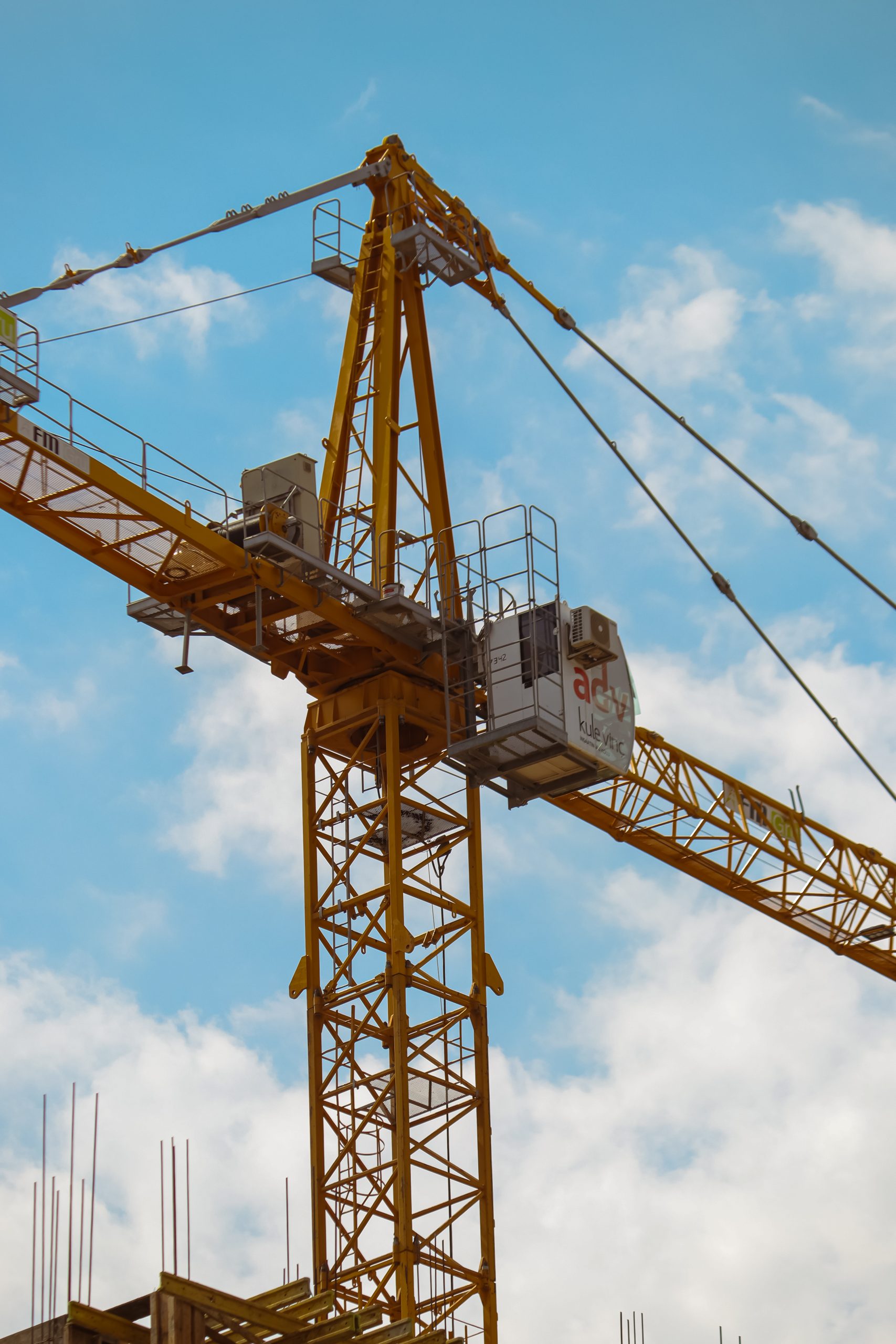Curious about construction law and ethics? Look no further! This article is here to provide you with important information and guidance on common legal concerns in the construction industry. We understand that navigating legal issues can be daunting, but rest assured, our team of experienced attorneys is ready to assist you promptly. From addressing key legal concerns to promoting ethical practices, we aim to create an emotional connection and reassure you that help is just a phone call away. So, whether you’re a contractor, homeowner, or architect, read on to gain valuable insights and discover how our expertise can support you.

Introduction to Construction Law and Ethics
Construction law and ethics are essential components of the construction industry. Understanding and adhering to the legal and ethical principles in construction projects is crucial for the smooth operation and success of any construction endeavor. This comprehensive article will provide you with a comprehensive overview of construction law and ethics, covering various aspects including construction contracts, dispute resolution, building codes and regulations, ethical considerations, environmental sustainability, construction safety, insurance and risk management, and seeking legal assistance.
1. Understanding Construction Law
1.1 Different aspects of construction law
Construction law encompasses various legal aspects related to the construction industry. It involves contracts, labor laws, building codes, insurance, dispute resolution, and more. Familiarizing yourself with these different aspects will help you navigate through the complexities of construction projects and ensure legal compliance.
1.2 Key principles in construction law
There are several key principles in construction law that serve as the foundation for legal compliance in the industry. These principles include contract formation, the duty of care, payment provisions, dispute resolution, and more. Understanding these principles will equip you with the knowledge necessary to avoid legal pitfalls and protect your rights in construction projects.
1.3 Regulations and codes in construction law
Construction projects are subject to various regulations and codes imposed by local, state, and federal authorities. These regulations cover areas such as building safety, environmental sustainability, occupational health, and more. It is important to familiarize yourself with these regulations and ensure compliance to avoid legal consequences and ensure the safety and well-being of all involved in the project.
1.4 Common legal concerns in construction projects
Construction projects often come with their fair share of legal concerns. Some common legal issues include contract disputes, construction defects, non-payment or delayed payments, regulatory compliance issues, negligence claims, and more. Being aware of these common legal concerns will help you anticipate and address potential issues before they escalate into costly disputes.
2. The Role of Contracts in Construction Law
2.1 Importance of contracts in construction projects
Contracts play a vital role in construction projects. They outline the rights, obligations, and responsibilities of all parties involved, including the owner, contractor, subcontractors, suppliers, and other stakeholders. A well-drafted and comprehensive contract can help minimize disputes, provide clarity in terms of project scope, timeline, and payment terms, and protect the interests of all parties involved.
2.2 Essential elements of a construction contract
A construction contract should contain essential elements to ensure legal enforceability and clarity. These elements include the identification of parties, project description, scope of work, contract price, payment terms, project timeline, dispute resolution mechanisms, and more. Including these elements in your construction contract is crucial to avoid ambiguity and protect your rights.
2.3 Common issues with contracts in construction
Despite the importance of contracts, there are common issues that can arise in construction projects. These issues may include ambiguities in contract terms, insufficient or inaccurate project specifications, inadequate contract administration, changes in project scope, delays, and more. It is important to review and negotiate contracts carefully to address potential issues and protect your interests.
3. Construction Disputes and Resolutions
3.1 Common types of construction disputes
Construction projects can give rise to various types of disputes. Some common types include payment disputes, construction defects, delays, change order disputes, breach of contract claims, and more. It is crucial to understand the nature of these disputes and explore effective dispute resolution mechanisms to minimize the impact on your project and relationships.
3.2 Mediation as a form of dispute resolution
Mediation offers a cost-effective and cooperative approach to resolving construction disputes. In mediation, a neutral third party assists the parties in reaching a mutually satisfactory agreement. It allows for open communication, exploration of creative solutions, and preservation of relationships. Considering mediation as a dispute resolution option can save time, money, and maintain a positive working environment.
3.3 Arbitration as a form of dispute resolution
Arbitration is a more formal alternative to litigation in construction disputes. It involves presenting the dispute to a neutral third party arbitrator or panel who renders a binding decision. Arbitration offers advantages such as confidentiality, expertise of the arbitrator, and flexibility in process and scheduling. Understanding the pros and cons of arbitration can help you make informed decisions when faced with construction disputes.
3.4 Litigation in construction disputes
Litigation is the traditional method of resolving construction disputes through the court system. It can be costly, time-consuming, and adversarial in nature. However, in some cases, litigation may be necessary to protect your rights and seek legal remedies. It is important to consult with a construction attorney to evaluate the feasibility of litigation and navigate the complex legal procedures involved.
4. Ensuring Compliance with Building Codes and Regulations
4.1 Importance of building codes and regulations in construction
Building codes and regulations are put in place to ensure the safety, quality, and durability of structures. Compliance with these codes is essential to protect the occupants, the environment, and the integrity of the construction project. Familiarizing yourself with the applicable building codes and regulations, as well as involving experts such as architects and engineers, will help ensure legal compliance and the success of your project.
4.2 Role of permits and inspections in construction projects
Permits and inspections are crucial components of the construction process. Building permits must be obtained before starting construction to ensure compliance with zoning, safety, and other regulatory requirements. Inspections are conducted at different stages of the construction process to verify compliance with building codes and regulations. Adhering to the permit and inspection processes is essential to avoid legal consequences and ensure the safety and quality of your construction project.
4.3 Consequences of non-compliance with building codes
Non-compliance with building codes can have serious consequences. It can lead to project delays, fines, penalties, work stoppages, and even legal liabilities. Non-compliance can also compromise the safety and structural integrity of the building, putting the occupants at risk. Prioritizing compliance with building codes and regulations is essential to avoid these negative outcomes and protect your reputation in the industry.
5. Ethical Considerations in Construction
5.1 Importance of ethics in the construction industry
Ethics play a vital role in the construction industry. Embracing ethical practices promotes trust, integrity, and professionalism. It ensures fair treatment of workers, respect for the environment, transparency in business dealings, and adherence to legal and regulatory requirements. Operating ethically not only benefits the reputation of construction professionals but also contributes to the overall success and sustainability of the industry.
5.2 Ethical obligations of construction professionals
Construction professionals have ethical obligations towards their clients, workers, the environment, and the public. These obligations include acting in the best interest of the client, providing high-quality work, ensuring the safety and well-being of workers, minimizing environmental impacts, and maintaining honesty and integrity in all business dealings. Upholding these ethical obligations is essential to build strong relationships, foster trust, and achieve long-term success in the construction industry.
5.3 Ethical issues commonly faced in construction projects
Construction projects can present various ethical challenges. These may include conflicts of interest, bribery and corruption, substandard work, unfair labor practices, environmental damage, and more. It is important to identify and address these ethical issues proactively, establish ethical policies and guidelines, and promote a culture of ethical behavior throughout the organization to mitigate risks and maintain a positive reputation.

6. Environmental and Sustainability Concerns
6.1 Legal requirements for environmental sustainability in construction
Environmental sustainability is gaining prominence in the construction industry. Construction projects are subject to legal requirements aimed at minimizing environmental impacts, conserving resources, and promoting eco-friendly practices. These requirements may include compliance with environmental impact assessment regulations, waste management plans, energy efficiency standards, and more. Understanding and complying with these legal requirements is crucial to promote environmental sustainability in construction projects.
6.2 Green building certifications and standards
Green building certifications and standards provide guidelines and benchmarks for sustainable construction practices. Certifications such as LEED (Leadership in Energy and Environmental Design) and BREEAM (Building Research Establishment Environmental Assessment Method) assess the environmental performance and sustainability of buildings. Incorporating green building strategies and pursuing certifications can enhance the environmental performance of your construction projects and showcase your commitment to sustainability.
6.3 Ethical considerations in sustainable construction
Sustainable construction goes beyond legal compliance and requires ethical considerations. This includes adopting sustainable design and construction practices, promoting the use of renewable materials, minimizing waste and pollution, implementing energy-efficient technologies, and prioritizing social and environmental responsibility. Incorporating ethical considerations in sustainable construction contributes to a more resilient and environmentally conscious industry.
7. Construction Safety and Occupational Health
7.1 Legal obligations for ensuring construction site safety
Construction site safety is a paramount concern in the industry. Legal obligations exist to ensure the well-being and protection of workers and other individuals present at construction sites. These obligations may include providing a safe working environment, implementing safety protocols and measures, conducting regular inspections, and providing appropriate safety training and protective equipment. Adhering to these legal obligations is essential to prevent accidents, injuries, and costly legal liabilities.
7.2 Occupational health regulations in the construction industry
Occupational health regulations focus on protecting the physical and mental health of construction workers. These regulations address issues such as exposure to hazardous substances, noise control, ergonomics, work hours, and more. Complying with occupational health regulations is not only a legal requirement but also promotes the well-being and productivity of workers, creating a safer and healthier working environment.
7.3 Ethical responsibilities for workers’ safety
In addition to legal obligations, construction professionals have ethical responsibilities towards the safety of their workers. This includes providing adequate training, promoting a culture of safety, addressing safety concerns promptly, empowering workers to report hazards, and ensuring fair compensation and benefits. Prioritizing workers’ safety ethically demonstrates care and respect for the workforce and fosters a positive and productive work environment.

8. Construction Insurance and Risk Management
8.1 Types of insurance coverage in construction
Construction projects involve inherent risks, and insurance coverage helps mitigate these risks. Key types of insurance coverage in construction include general liability insurance, workers’ compensation insurance, builder’s risk insurance, professional liability insurance, and more. Adequate insurance coverage protects construction professionals from financial losses, litigation, and unforeseen circumstances, providing peace of mind and ensuring the financial viability of the project.
8.2 Risk assessment and mitigation strategies
Risk assessment and mitigation are integral parts of successful construction projects. Identifying potential risks, such as design flaws, budget overruns, delays, safety hazards, and environmental impacts, allows for proactive risk management. Developing and implementing risk mitigation strategies, such as contingency plans, safety measures, regular monitoring, and timely communication, minimizes the likelihood and impact of risks. By addressing risks effectively, construction professionals can enhance project outcomes and protect their interests.
8.3 Ethical considerations in managing project risks
Managing project risks ethically involves transparency, honesty, and integrity. This includes accurately communicating project risks to stakeholders, implementing fair and equitable risk allocation mechanisms in contracts, and ensuring that risk management decisions prioritize the best interests of all parties involved. By considering ethical principles in risk management, construction professionals can foster trust, mitigate conflicts, and promote a collaborative and ethical working environment.
10. Seeking Legal Assistance in Construction
10.1 When to consult a construction attorney
Consulting a construction attorney is crucial in various situations throughout the course of a construction project. It is advisable to seek legal assistance when negotiating and drafting contracts, when disputes arise, when facing compliance issues with building codes and regulations, when dealing with insurance claims, and when seeking guidance on ethical considerations. Consulting with a construction attorney ensures that your legal rights and interests are protected at every stage of the project.
10.2 Choosing the right construction attorney
Choosing the right construction attorney is essential for effective legal representation and guidance. Look for an attorney with experience in construction law, knowledge of local regulations, a track record of successful construction cases, and a reputation for client satisfaction. Consider their communication style, availability, and willingness to understand and address your specific needs. A good fit between you and your construction attorney will contribute to a productive and successful legal partnership.
10.3 Benefits of legal guidance in construction projects
Obtaining legal guidance in construction projects offers numerous benefits. A construction attorney can provide legal expertise, review and negotiate contracts, offer guidance on compliance with building codes and regulations, assist in resolving disputes, provide risk management strategies, and ensure ethical considerations are met. By seeking legal assistance, you can minimize legal risks, protect your rights, and navigate the complexities of the construction industry with confidence.
In conclusion, construction law and ethics are critical elements in the construction industry. Understanding the different aspects of construction law, the role of contracts, methods of dispute resolution, compliance with building codes and regulations, ethical considerations, environmental sustainability, construction safety, insurance and risk management, and the benefits of seeking legal assistance is fundamental to a successful construction project. By adhering to legal and ethical principles, construction professionals can ensure compliance, protect their rights, and contribute to a sustainable and responsible construction industry. If you have any specific legal concerns or questions, it is highly recommended to consult with a construction attorney who can provide personalized guidance and assistance tailored to your project’s needs.